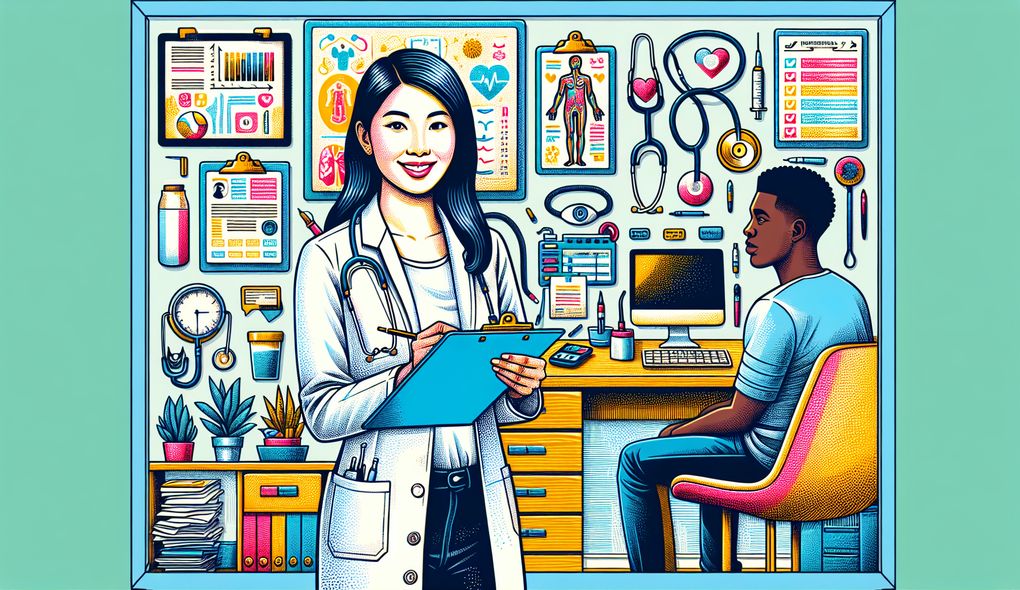What measures do you take to ensure effective communication with patients?
JUNIOR LEVEL

Sample answer to the question:
To ensure effective communication with patients, I make sure to actively listen to their concerns and provide clear and concise explanations. I also take the time to understand their unique needs and preferences, so I can tailor my communication style accordingly. Additionally, I use non-technical language to explain medical concepts and procedures to ensure they are easily understood. I am also diligent in documenting all patient interactions and keeping detailed records to ensure accurate and consistent communication throughout their healthcare journey.
Here is a more solid answer:
To ensure effective communication with patients, I employ a variety of measures. Firstly, I prioritize active listening, providing patients with ample time to express their concerns and ask questions. I make sure to use non-technical language and avoid medical jargon when explaining medical conditions, treatments, and procedures, ensuring patients can easily understand the information. Furthermore, I customize my communication style to accommodate the diverse backgrounds and needs of my patients, fostering a comfortable and inclusive environment. In terms of disease prevention and control methods, I educate patients about preventive measures, such as proper hand hygiene and vaccination schedules. I also collaborate with other medical specialists when necessary, ensuring patients receive comprehensive care and the most appropriate referrals. Overall, I consistently document and update patient records to maintain accurate and consistent communication throughout their healthcare journey.
Why is this a more solid answer?
The solid answer provides specific measures taken to ensure effective communication with patients, including active listening, using non-technical language, and customization of communication style. It also highlights the candidate's knowledge and skills in disease prevention and control methods, as well as their ability to collaborate with other medical specialties. However, the answer could be further improved by including examples or specific experiences where the candidate successfully applied these measures.
An example of a exceptional answer:
Ensuring effective communication with patients is of utmost importance to me. I take a holistic approach that encompasses various measures. Firstly, I establish a strong rapport with patients by engaging in empathetic communication, considering their emotions and concerns. By actively listening and acknowledging their feelings, I create a safe space for open dialogue. I also recognize the significance of cultural competence and strive to understand diverse backgrounds, beliefs, and communication styles. This enables me to adapt my language and communication methods to ensure clear understanding. Moreover, I am proactive in educating patients about disease prevention, sharing evidence-based information tailored to their health needs. In terms of collaboration, I actively engage with other medical specialties, participating in interdisciplinary meetings and consultations to ensure comprehensive care. For instance, I frequently work with nutritionists, psychologists, and physiotherapists to address patients' holistic well-being. Overall, I maintain meticulous records and utilize electronic health records systems to facilitate seamless communication and continuity of care.
Why is this an exceptional answer?
The exceptional answer demonstrates a comprehensive approach to effective communication with patients. It emphasizes the candidate's empathetic communication style, cultural competence, and proactive education of patients. The answer also highlights the candidate's active collaboration with other medical specialties and their utilization of electronic health records systems. The inclusion of specific examples, such as working with nutritionists and psychologists, further strengthens the answer. The candidate's focus on seamless communication and continuity of care showcases their dedication to patient-centered healthcare.
How to prepare for this question:
- Familiarize yourself with disease prevention and control methods and be prepared to discuss how you educate patients about preventive measures.
- Think about your approach to active listening and empathetic communication. Prepare examples that demonstrate your ability to create a safe space for patients to express their concerns.
- Brush up on your knowledge of other medical specialties and be ready to explain when and how you collaborate with them for comprehensive patient care.
- Consider your experience with electronic health records systems and how you utilize them to facilitate effective communication and continuity of care.
What are interviewers evaluating with this question?
- Interpersonal communication skills
- Ability to work with a diverse patient base
- Knowledge of disease prevention and control methods
- Basic understanding of other medical specialties and when to refer patients to specialists

